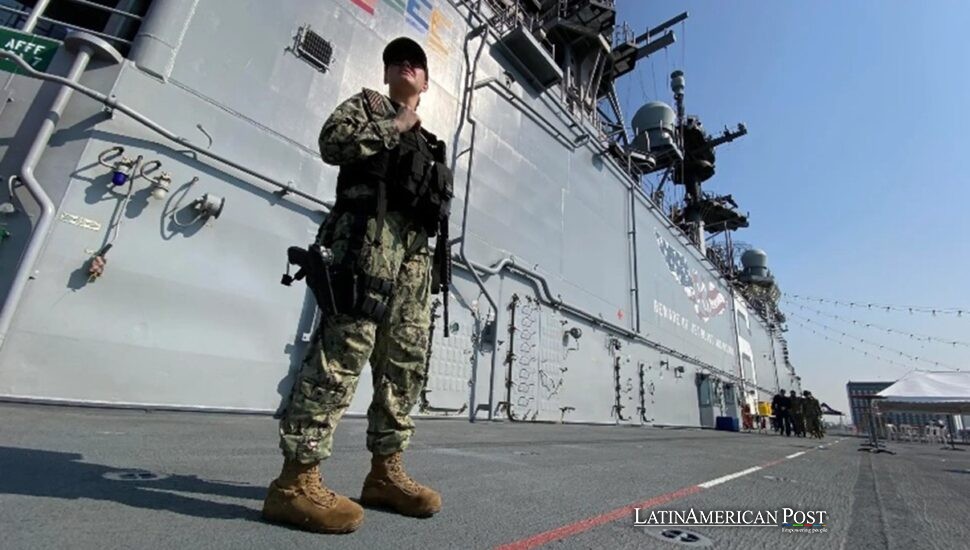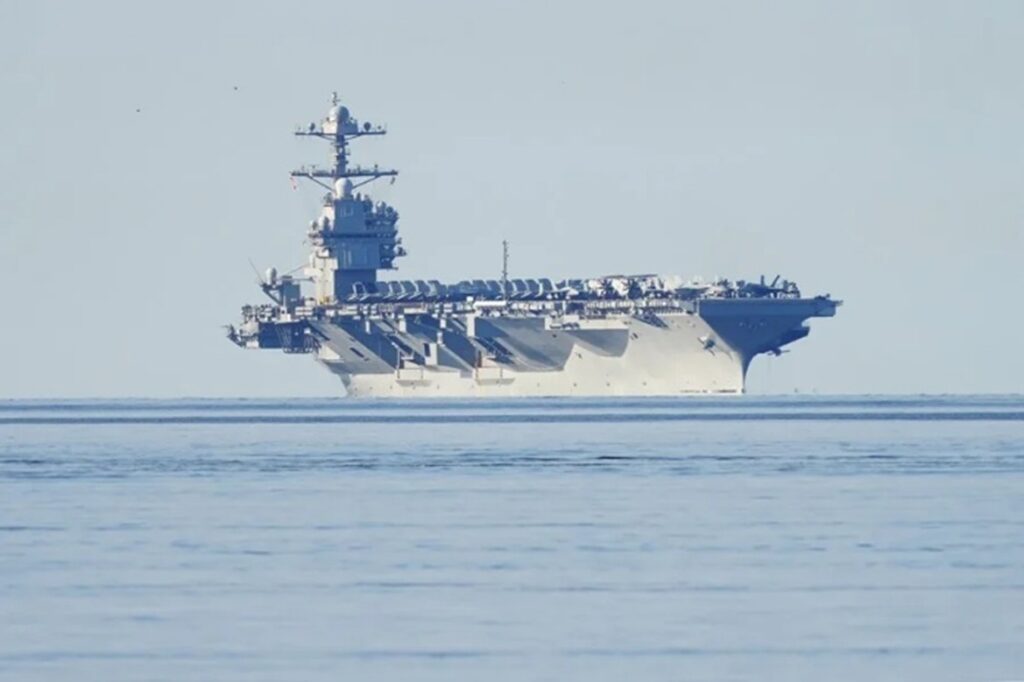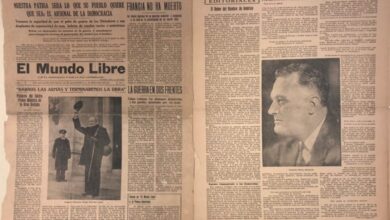Latin America Tests Washington's Credibility as China Redraws Maritime Rules

From the South China Sea to the Caribbean, power politics rhyme. When Washington flexes unilaterally in Latin America, it weakens the legal case it needs to rally allies against Beijing’s maritime coercion, and risks a world where might, not law, decides.
History’s Mirror on Distant Waters
Across the South China Sea, Beijing has built an empire of sand and concrete. It has dredged reefs into islands, paved runways, and extended its radar reach across one of the world’s busiest shipping lanes. Its coast guard now escorts swarms of fishing vessels that act more like militias, ramming rivals and firing water cannons in territorial disputes.
The pattern, scholars say, echoes a familiar playbook. The difference is in the tools, satellites instead of schooners, artificial reefs instead of forts, but the logic is the same: redraw maps through presence, not treaties.
For Washington, it’s an unsettling mirror. The image of a “Chinese lake” in Asia sounds uncomfortably like the Monroe Doctrine, once used to justify America’s dominance in the Caribbean. During the Obama years, the United States backed smaller Asian nations through diplomacy and legal rulings, championing freedom of navigation and arguing that international law must trump geography drawn at gunpoint. The strategy was clear: the United States didn’t need to own the waters; it needed to defend the rules that kept them open.
But a doctrine only endures if its author practices it.
Gunboat Gestures and the Monroe Reflex
That logic begins to collapse when U.S. behavior in its own hemisphere resembles what it condemns abroad. Over the past decade, American naval operations in the Caribbean and Pacific coasts of Latin America, framed as anti-narcotics missions, have grown more muscular. Small boats are sunk, operations are announced without regional consultation, and fiery rhetoric about “wars” on traffickers fills the air.
To many in the region, it feels like déjà vu. The optics are impossible to miss: a superpower acting unilaterally in smaller nations’ waters while preaching restraint to China.
The problem runs deeper than perception. When U.S. officials speak of killing traffickers “without mercy” or flexing military power without congressional oversight, they undercut the very legal order they claim to defend in Asia.
The credibility gap widens with every inconsistency. Beijing eagerly seizes on them. Chinese state media routinely cite U.S. interventions in Latin America as proof that Washington’s talk of law is “a mask for hegemony.” The message resonates with audiences who remember coups, embargoes, and invasions justified under high-minded slogans. The more the United States plays the sheriff in its backyard, the easier it becomes for China to play the victim in its own.}

Law, Legitimacy, and the Geography of Power
Power, as strategists like to say, is geography’s child. China’s military advantage grows the closer it stays to home, while America’s shrinks with distance. That is why Washington has long relied on legitimacy to extend its reach. Coalitions form not because allies fear the U.S. might, but because they trust the U.S. restraint.
Yet legitimacy is fragile. It demands consistency between what a nation preaches and what it practices. When American warships destroy small, unnamed vessels in the Caribbean on executive order, or when sanctions and interventions bypass the Organization of American States, the message sent to Southeast Asia is not one of principle; it’s one of privilege.
For smaller states standing up to China, the Philippines, Vietnam, and Malaysia, that inconsistency stings. They risk confrontation precisely because they believe law still offers protection.
International law is not theater; it’s insurance. It keeps global commerce predictable, markets stable, and sea lanes safe. But like any insurance, it only works if all parties keep paying the premiums. When Washington skips its own payments, sidesteps due process, and shuns transparency, it forfeits the moral dividend that has long made it the world’s preferred partner.
A Better Doctrine for a Crowded Century
What would principled strength look like south of the Rio Grande? It would start with transparency. If the United States must act at sea, it should do so under public rules, shared evidence, regional authorization, and visible limits.
It would also mean decoupling security from spectacle. The temptation to turn anti-narcotics missions into political theater is powerful, especially in election years. But the region remembers how similar crusades, against communism, drugs, terrorism, once justified coups and occupations. Quiet legality will outlast loud heroics.
Finally, Washington must reclaim the language of law as a strategy, not a sermon. In Asia, that means continuing to support smaller nations that use courts and alliances to resist coercion. In Latin America, it means proving the same discipline applies at home: no special exemptions, no unilateral doctrines dressed as partnerships.
The paradox of power is that restraint often signals more strength than aggression. Every transparent operation, every cooperative patrol, every consultation that slows a decision but earns trust becomes a brick in the wall of legitimacy that Beijing cannot match.
If Latin America becomes the stage where the United States shows it can follow the same rules it demands of others, then the Caribbean will reinforce, not weaken, its hand in the Pacific. But if Washington treats its neighbors as second-tier partners, it will find that every destroyer it sends east buys less deterrence, and every appeal to law sounds more like a plea.
Power fades. Credibility compounds. In an age when China is larger, faster, and closer to the seas it covets, the United States cannot afford to squander the one resource only it can create: the habit of acting as if law binds the strong.
Latin America isn’t a distraction from that test; it is the first exam.
Also Read: Bolivia’s Rodrigo Paz Faces a Nation on Empty: Gas, Dollars, and Trust Running Out





